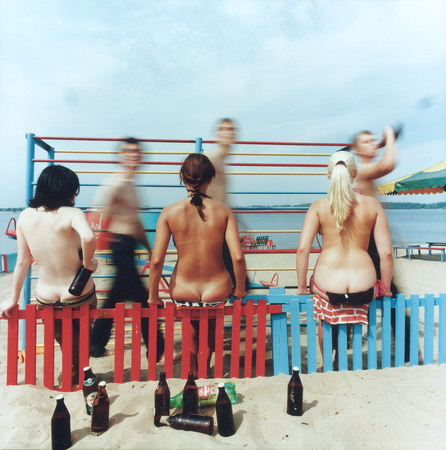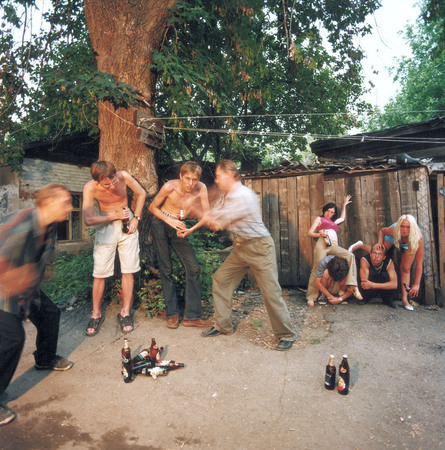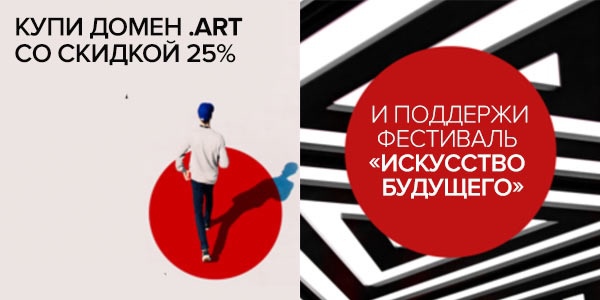The Games of Chance


Sergey Tchilikov. From “The Games of Chance” series. 2004-2005
Sergey Tchilikov. From “The Games of Chance” series. 2004-2005
Moscow, 21.02.2005—23.03.2005
exhibition is over
XL Gallery
Podkolokolniy pereulok, 16/2
Share with friends
For the press
A group of young people, Samara, a camera lens... Everything else is action. Whether it is real or not — doesn’t matter. What works here is the rule «Why not?» Whatever has been shown on film does not have any reasons not to take place in real life. Deviant behavior as a regression of psychic energy of an individual ego or the study of the metaphysics of gambling? It is only a photograph. Without a frame, without a glass cover, without any barriers hampering our perception, without «interiority». Such is the Chilikov phenomenon. His style is rooted in the photographic genre. Chilikov’s photographs are at the same time complicated and simple. Using all the arsenal at hand, layers of photographic art, be it documentaries, settings, a fixed moment — he conveys the idea of «here and now». With the main leitmotif being perversion, disclosure of what is hidden, the exit of the restricted. Gambling here is shown not in its direct meaning, but in a deeper sense that this notion has. Negative energy, as it is being liberated, frees the personality from the necessity of regression and entropy which might lead to paranoiac frustration and the subsequent neurotic depression. The result is positive. Aggression, banditism and terrorism — all these are just metastasizes of the gambling principle: from introversive-individual to social phenomena. The hidden realms of the spirit, where this energy tends to concentrate, are always locked with maximum security. Sometimes we even throw the key away and end up seeing ourselves patients of a psychiatric hospital, where the lock, broken by ourselves in a critical situation (though we might not remember it) might be restored. The only way to escape this is to use the key from time to time and to open the Pandora’s box while the contents doesn’t go over the brim.
This is exactly how the protagonists of the «Gambling» Project are acting. Young men and women from Samara, playing games such as chess or checkers, discover in themselves a fine ability to study their own dark labyrinths. Wild orgies, fantasies, based on the libido (as well as beyond it), instincts of possession, destruction, anarchy and entropy. The photographing is done on the border between the social and individual. The agonizing bestiary into which the curious viewer stares makes one shudder or smile with disgust. But there is one rub. There is a sinking sensation in the pit of one’s stomach. We feel shame. And the more you look, the more you blush. And only gradually do you realize that you could have been one of the personages of the project. Ask yourself a question: «Why not?» Have you ever played a game of chess and after losing... Have you been tempted by the unpleasant feeling of aggression aimed at your opponent? Or was it a duel of checkers? Or poker? With some money at stake? Do you really know how to lose? What about opening the lock? Why limit oneself to the role of the spectator? The hormone evil which overwhelmed the participants of this project and which an artist frees is present in every one of us. The main thing is to thoroughly search the pockets of our consciousness and to find a key. People who cannot be carried away by a game simply do not exist. What does exist is an individual who is afraid to admit it.
Andrei Parshikov


